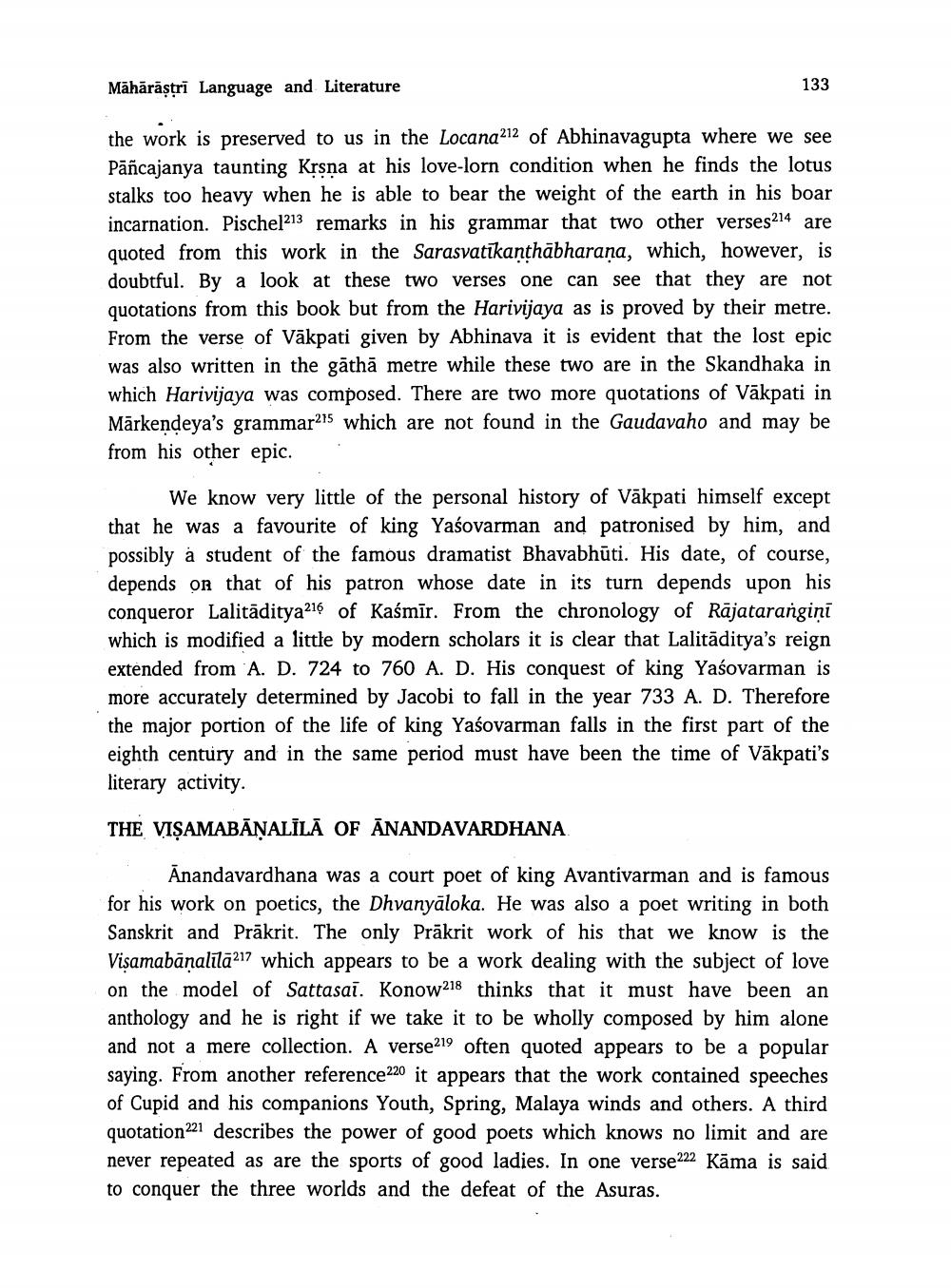________________
Māhārāştri Language and Literature
133
the work is preserved to us in the Locana212 of Abhinavagupta where we see Pāñcajanya taunting Krsna at his love-lorn condition when he finds the lotus stalks too heavy when he is able to bear the weight of the earth in his boar incarnation. Pischel213 remarks in his grammar that two other verses214 are quoted from this work in the Sarasvatīkanthābharana, which, however, is doubtful. By a look at these two verses one can see that they are not quotations from this book but from the Harivijaya as is proved by their metre. From the verse of Vākpati given by Abhinava it is evident that the lost epic was also written in the gāthā metre while these two are in the Skandhaka in which Harivijaya was composed. There are two more quotations of Vākpati in Mārkendeya's grammar215 which are not found in the Gaudavaho and may be from his other epic.
We know very little of the personal history of Vākpati himself except that he was a favourite of king Yaśovarman and patronised by him, and possibly a student of the famous dramatist Bhavabhūti. His date, of course, depends on that of his patron whose date in its turn depends upon his conqueror Lalitāditya216 of Kaśmīr. From the chronology of Rājatarangini which is modified a little by modern scholars it is clear that Lalitāditya's reign extended from A. D. 724 to 760 A. D. His conquest of king Yasovarman is more accurately determined by Jacobi to fall in the year 733 A. D. Therefore the major portion of the life of king Yaśovarman falls in the first part of the eighth century and in the same period must have been the time of Vākpati's literary activity.
THE VIŞAMABĀŅALĪLĀ OF ANANDAVARDHANA,
Anandavardhana was a court poet of king Avantivarman and is famous for his work on poetics, the Dhvanyāloka. He was also a poet writing in both Sanskrit and Prākrit. The only Prākrit work of his that we know is the Visamabanalīlā217 which appears to be a work dealing with the subject of love on the model of Sattasai. Konow218 thinks that it must have been an anthology and he is right if we take it to be wholly composed by him alone and not a mere collection. A verse219 often quoted appears to be a popular saying. From another reference 220 it appears that the work contained speeches of Cupid and his companions Youth, Spring, Malaya winds and others. A third quotation221 describes the power of good poets which knows no limit and are never repeated as are the sports of good ladies. In one verse222 Kāma is said, to conquer the three worlds and the defeat of the Asuras.




